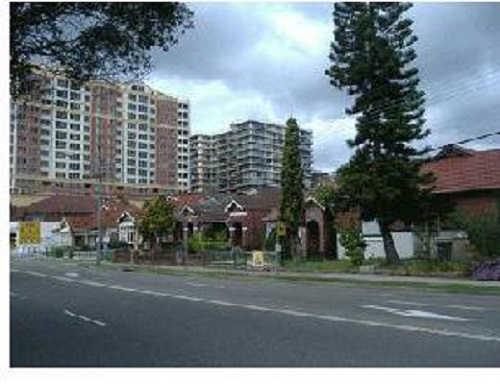Economy
The 15-Minute City: An extraordinarily bad idea

From the Frontier Centre for Public Policy
” the average resident of the New York urban area—the closest thing to a 15-minute city in the U.S. or Canada—can reach at least 21 times as many jobs in a 20-minute auto drive as in a 20-minute walk. The same will be true of other economic opportunities. “
The latest urban planning fad to sweep across Canada is the 15-minute city, which proposes to redesign cities so that all urban residents live within an easy, 15-minute walk of schools, retailers, restaurants, entertainment, and other essentials of modern life. This is supposed to simultaneously reduce greenhouse gas emissions while it increases our quality of life.
Some think it is a conspiracy. Others insist it is not. Conspiracy or not, the only way to have true 15-minute cities would be to drastically change Canadian lifestyles.
Fifteen-minute cities mean a lot more people living in multifamily housing and fewer in single-family housing. It means most food shopping would be done in high-priced, limited-selection grocery stores. There is no way that Costcos or even large supermarkets can fit into 15-minute cities; to survive, these stores need a lot more customers than could live within a 15-minute walk from their front doors.
Most of the benefits claimed for 15-minute cities are wrong. Proponents claim they would be more affordable, but high-density, multi-story housing costs two to five times as much, per square foot, as single-family homes. Packing people into four- and five-story apartment buildings would require cutting average dwelling sizes at least in half to make them anywhere close to affordable.
Proponents also claim 15-minute cities would save energy and reduce greenhouse gases and other pollutants. But let’s be honest: people aren’t going to give up their cars or stop going to Costco.
Admittedly, the U.S. Department of Energy says that people living in high-density cities do drive a little less than people in low-density areas. But it also says that there is a lot more congestion in high-density cities. Since cars use more energy in slower traffic, high-density cities use more energy (and therefore emit more greenhouse gases) per capita than low-density areas.
Proponents also claim that 15-minute cities will be more equitable. Yet, before about 1890, most Canadian cities were 15-minute cities. Most people in these cities lived in crushing poverty and there were huge disparities between the rich and the poor, with only a small middle-class in between.
What changed these cities was the mass-produced automobile. The Model T Ford democratized mobility, allowing more people to escape the dense cities to find better housing, better jobs, access to lower-cost consumer goods, and a wider range of social and recreation opportunities.
The University of Minnesota Accessibility Observatory calculates that the average resident of the New York urban area—the closest thing to a 15-minute city in the U.S. or Canada—can reach at least 21 times as many jobs in a 20-minute auto drive as in a 20-minute walk. The same will be true of other economic opportunities. Eliminating the automobile, which is the goal of the 15-minute city, would eliminate those economic benefits.
We had this same debate 50-some years ago when urban skies were polluted with carbon monoxide, smog, and other toxic automobile emissions. Some people advocated policies that would force people to drive less. Others advocated new technologies that would reduce the air pollution coming from autos and trucks.
Today, total automotive air pollution has been reduced by about 90 percent. All this improvement came from cleaner cars: new cars today pollute only about 1 percent as much as cars made in 1970. None of this improvement came from anti-automobile policies, as Canadians drive far more miles today than they did 50 years ago.
If anything, policies aimed at reducing driving made pollution worse as one of those policies was to increase traffic congestion to get people out of their cars. Yet, as noted above, cars actually pollute more in congested traffic.
Anti-automobile policies today, including 15-minute cities, spending billions on rail transit lines that carry only a small percentage of urban travel, and converting general street lanes into exclusive bike lanes, are going to have the same effect.
People who care about the planet should demand policies that actually work and not ones that are based on urban planning fantasies and fads. Instead of attempting to drastically change Canadian lifestyles, that means making cars that are cleaner and more fuel-efficient so that the driving we do has a lower environmental impact. The 15-minute city may not be a conspiracy, but it is still an extraordinarily bad idea.
Randal O’Toole is a transportation policy analyst and author of Building 21 st Century Transit Systems for Canadian Cities, an upcoming report published by the Frontier Centre for Public Policy.
Watch Randal on Leaders on the Frontier here.
Business
Fuelled by federalism—America’s economically freest states come out on top

From the Fraser Institute
Do economic rivalries between Texas and California or New York and Florida feel like yet another sign that America has become hopelessly divided? There’s a bright side to their disagreements, and a new ranking of economic freedom across the states helps explain why.
As a popular bumper sticker among economists proclaims: “I heart federalism (for the natural experiments).” In a federal system, states have wide latitude to set priorities and to choose their own strategies to achieve them. It’s messy, but informative.
New York and California, along with other states like New Mexico, have long pursued a government-centric approach to economic policy. They tax a lot. They spend a lot. Their governments employ a large fraction of the workforce and set a high minimum wage.
They aren’t socialist by any means; most property is still in private hands. Consumers, workers and businesses still make most of their own decisions. But these states control more resources than other states do through taxes and regulation, so their governments play a larger role in economic life.
At the other end of the spectrum, New Hampshire, Tennessee, Florida and South Dakota allow citizens to make more of their own economic choices, keep more of their own money, and set more of their own terms of trade and work.
They aren’t free-market utopias; they impose plenty of regulatory burdens. But they are economically freer than other states.
These two groups have, in other words, been experimenting with different approaches to economic policy. Does one approach lead to higher incomes or faster growth? Greater economic equality or more upward mobility? What about other aspects of a good society like tolerance, generosity, or life satisfaction?
For two decades now, we’ve had a handy tool to assess these questions: The Fraser Institute’s annual “Economic Freedom of North America” index uses 10 variables in three broad areas—government spending, taxation, and labor regulation—to assess the degree of economic freedom in each of the 50 states and the territory of Puerto Rico, as well as in Canadian provinces and Mexican states.
It’s an objective measurement that allows economists to take stock of federalism’s natural experiments. Independent scholars have done just that, having now conducted over 250 studies using the index. With careful statistical analyses that control for the important differences among states—possibly confounding factors such as geography, climate, and historical development—the vast majority of these studies associate greater economic freedom with greater prosperity.
In fact, freedom’s payoffs are astounding.
States with high and increasing levels of economic freedom tend to see higher incomes, more entrepreneurial activity and more net in-migration. Their people tend to experience greater income mobility, and more income growth at both the top and bottom of the income distribution. They have less poverty, less homelessness and lower levels of food insecurity. People there even seem to be more philanthropic, more tolerant and more satisfied with their lives.
New Hampshire, Tennessee, and South Dakota topped the latest edition of the report while Puerto Rico, New Mexico, and New York rounded out the bottom. New Mexico displaced New York as the least economically free state in the union for the first time in 20 years, but it had always been near the bottom.
The bigger stories are the major movers. The last 10 years’ worth of available data show South Carolina, Ohio, Wisconsin, Idaho, Iowa and Utah moving up at least 10 places. Arizona, Virginia, Nebraska, and Maryland have all slid down 10 spots.
Over that same decade, those states that were among the freest 25 per cent on average saw their populations grow nearly 18 times faster than those in the bottom 25 per cent. Statewide personal income grew nine times as fast.
Economic freedom isn’t a panacea. Nor is it the only thing that matters. Geography, culture, and even luck can influence a state’s prosperity. But while policymakers can’t move mountains or rewrite cultures, they can look at the data, heed the lessons of our federalist experiment, and permit their citizens more economic freedom.
Business
The world is no longer buying a transition to “something else” without defining what that is

From Resource Works
Even Bill Gates has shifted his stance, acknowledging that renewables alone can’t sustain a modern energy system — a reality still driving decisions in Canada.
You know the world has shifted when the New York Times, long a pulpit for hydrocarbon shame, starts publishing passages like this:
“Changes in policy matter, but the shift is also guided by the practical lessons that companies, governments and societies have learned about the difficulties in shifting from a world that runs on fossil fuels to something else.”
For years, the Times and much of the English-language press clung to a comfortable catechism: 100 per cent renewables were just around the corner, the end of hydrocarbons was preordained, and anyone who pointed to physics or economics was treated as some combination of backward, compromised or dangerous. But now the evidence has grown too big to ignore.
Across Europe, the retreat to energy realism is unmistakable. TotalEnergies is spending €5.1 billion on gas-fired plants in Britain, Italy, France, Ireland and the Netherlands because wind and solar can’t meet demand on their own. Shell is walking away from marquee offshore wind projects because the economics do not work. Italy and Greece are fast-tracking new gas development after years of prohibitions. Europe is rediscovering what modern economies require: firm, dispatchable power and secure domestic supply.
Meanwhile, Canada continues to tell itself a different story — and British Columbia most of all.
A new Fraser Institute study from Jock Finlayson and Karen Graham uses Statistics Canada’s own environmental goods and services and clean-tech accounts to quantify what Canada’s “clean economy” actually is, not what political speeches claim it could be.
The numbers are clear:
- The clean economy is 3.0–3.6 per cent of GDP.
- It accounts for about 2 per cent of employment.
- It has grown, but not faster than the economy overall.
- And its two largest components are hydroelectricity and waste management — mature legacy sectors, not shiny new clean-tech champions.
Despite $158 billion in federal “green” spending since 2014, Canada’s clean economy has not become the unstoppable engine of prosperity that policymakers have promised. Finlayson and Graham’s analysis casts serious doubt on the explosive-growth scenarios embraced by many politicians and commentators.
What’s striking is how mainstream this realism has become. Even Bill Gates, whose philanthropic footprint helped popularize much of the early clean-tech optimism, now says bluntly that the world had “no chance” of hitting its climate targets on the backs of renewables alone. His message is simple: the system is too big, the physics too hard, and the intermittency problem too unforgiving. Wind and solar will grow, but without firm power — nuclear, natural gas with carbon management, next-generation grid technologies — the transition collapses under its own weight. When the world’s most influential climate philanthropist says the story we’ve been sold isn’t technically possible, it should give policymakers pause.
And this is where the British Columbia story becomes astonishing.
It would be one thing if the result was dramatic reductions in emissions. The provincial government remains locked into the CleanBC architecture despite a record of consistently missed targets.
Since the staunchest defenders of CleanBC are not much bothered by the lack of meaningful GHG reductions, a reasonable person is left wondering whether there is some other motivation. Meanwhile, Victoria’s own numbers a couple of years ago projected an annual GDP hit of courtesy CleanBC of roughly $11 billion.
But here is the part that would make any objective analyst blink: when I recently flagged my interest in presenting my research to the CleanBC review panel, I discovered that the “reviewers” were, in fact, two of the key architects of the very program being reviewed. They were effectively asked to judge their own work.
You can imagine what they told us.
What I saw in that room was not an evidence-driven assessment of performance. It was a high-handed, fact-light defence of an ideological commitment. When we presented data showing that doctrinaire renewables-only thinking was failing both the economy and the environment, the reception was dismissive and incurious. It was the opposite of what a serious policy review looks like.
Meanwhile our hydro-based electricity system is facing historic challenges: long term droughts, soaring demand, unanswered questions about how growth will be powered especially in the crucial Northwest BC region, and continuing insistence that providers of reliable and relatively clean natural gas are to be frustrated at every turn.
Elsewhere, the price of change increasingly includes being able to explain how you were going to accomplish the things that you promise.
And yes — in some places it will take time for the tide of energy unreality to recede. But that doesn’t mean we shouldn’t be improving our systems, reducing emissions, and investing in technologies that genuinely work. It simply means we must stop pretending politics can overrule physics.
Europe has learned this lesson the hard way. Global energy companies are reorganizing around a 50-50 world of firm natural gas and renewables — the model many experts have been signalling for years. Even the New York Times now describes this shift with a note of astonishment.
British Columbia, meanwhile, remains committed to its own storyline even as the ground shifts beneath it. This isn’t about who wins the argument — it’s about government staying locked on its most basic duty: safeguarding the incomes and stability of the families who depend on a functioning energy system.
Resource Works News
-

 Crime12 hours ago
Crime12 hours agoTerror in Australia: 12 killed after gunmen open fire on Hanukkah celebration
-

 Energy2 days ago
Energy2 days agoCanada’s future prosperity runs through the northwest coast
-

 Crime12 hours ago
Crime12 hours agoHero bystander disarms shooter in Australian terror attack
-

 Business19 hours ago
Business19 hours agoInflation Reduction Act, Green New Deal Causing America’s Energy Crisis
-

 Business1 day ago
Business1 day agoFuelled by federalism—America’s economically freest states come out on top
-

 illegal immigration2 days ago
illegal immigration2 days agoUS Notes 2.5 million illegals out and counting
-

 Daily Caller1 day ago
Daily Caller1 day ago‘There Will Be Very Serious Retaliation’: Two American Servicemen, Interpreter Killed In Syrian Attack
-

 Automotive1 day ago
Automotive1 day agoPoliticians should be honest about environmental pros and cons of electric vehicles



